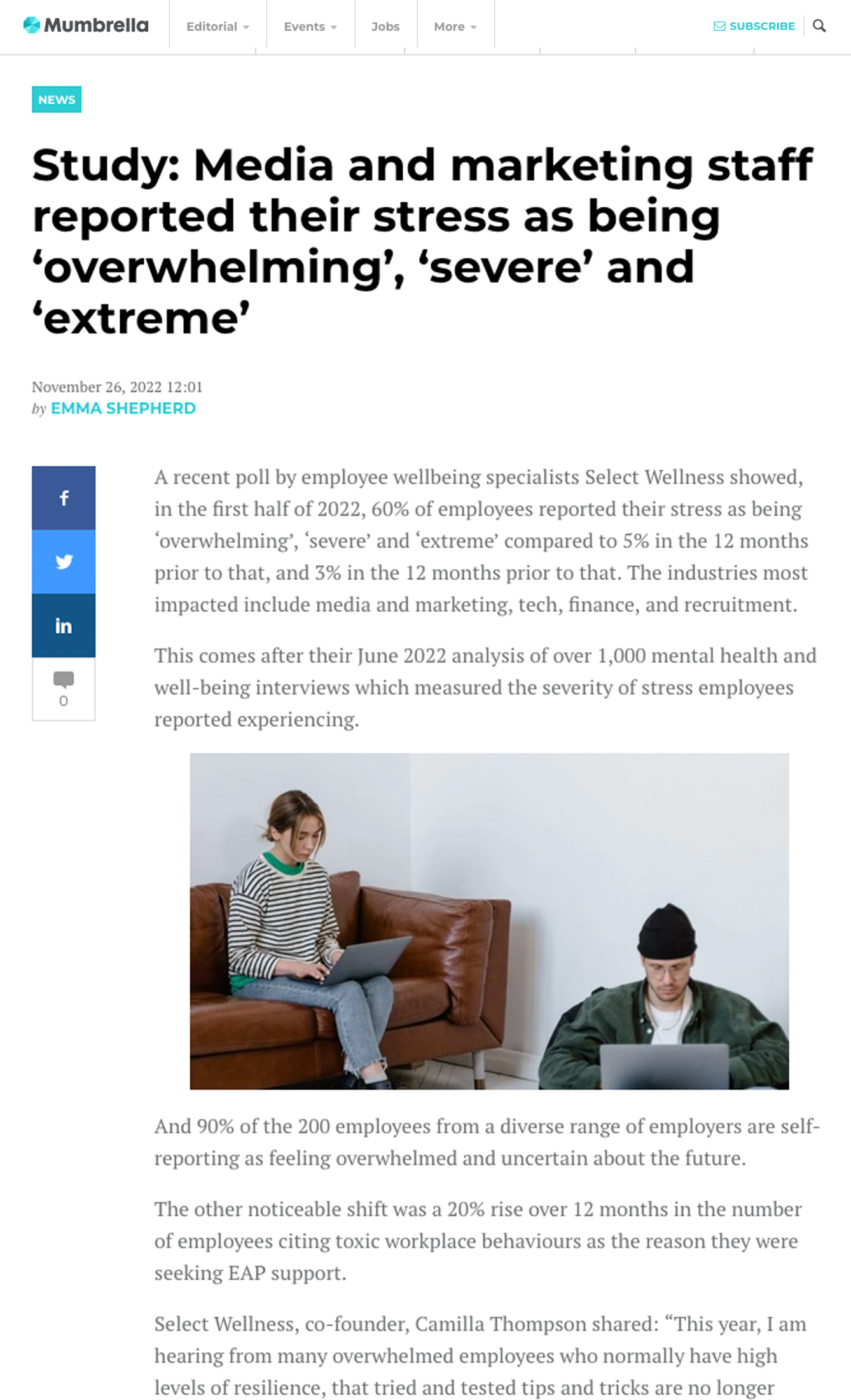Study: Media and marketing staff reported their stress as being ‘overwhelming’, ‘severe’ and ‘extreme’
by Emma Shepherd
…Select Wellness, co-founder, Camilla Thompson shared:
“This year, I am hearing from many overwhelmed employees who normally have high levels of resilience, that tried and tested tips and tricks are no longer cutting it when it comes to managing their wellbeing. They are more often turning to resignation as their best stress management tool, placing further pressure on those left behind.”
Select Wellness, co-founder, Martine Beaumont commented:
“In 2022, we have picked up on a noticeable increase in hopelessness and a rise in toxic negativity which is thwarting employee’s motivation to even engage with their wellbeing.”
This is reflected in the 2022 Alight International Workforce and Wellbeing Mindset Study which showed that engagement with well-being initiatives at work remains low despite record levels of stress.
To combat this climate of hopelessness and toxic negativity, as well as what Select views as the two other common current de-railers to employees shifting the dial on their well-being, Select has launched a new, realistic approach to well-being, Betterment.
Betterment Wellbeing encourages people to get their mindset right before they start improving their well-being. Empowering employees and leaders to live and work better, the Betterment mindset intentionally focuses on the potential for positive future outcomes and creating flexible paths to get there. Dropping the social media-fuelled need for perfection and external comparison, it addresses the balance between caring for others and oneself. Employees can then apply this mindset, using science-backed Betterment well-being tools, to do well-being incrementally in their chosen way.
Martine explained:
“The most powerful shifts we have seen in burnt-out and overwhelmed employees this year has been after educating them on the benefits of the hope mindset, they have been able to think, feel, connect and lead better. This is not surprising when you look at the number of studies that show that in times of prolonged stress, it is hope, not resilience, that is the single most protective factor.”
A hope mindset reframes uncertainty, as holding just as much potential for positive outcomes, as negative, and asks our minds to focus on what we can control, rather than what we are powerless to change.
Camilla shared:
“Pre, and in the early stages of the pandemic, we were seeing a lot of toxic positivity in workplaces with leaders insisting with minimal evidence and plans, that everything was going to be okay. Now the pendulum has swung to toxic negativity, with leaders and their teams focusing more and more on what is wrong, and ignoring or minimising the potential for positive outcomes and paths to get there. We believe this is a big factor contributing to the 62% of Australian workers currently struggling with symptoms of burnout.”


